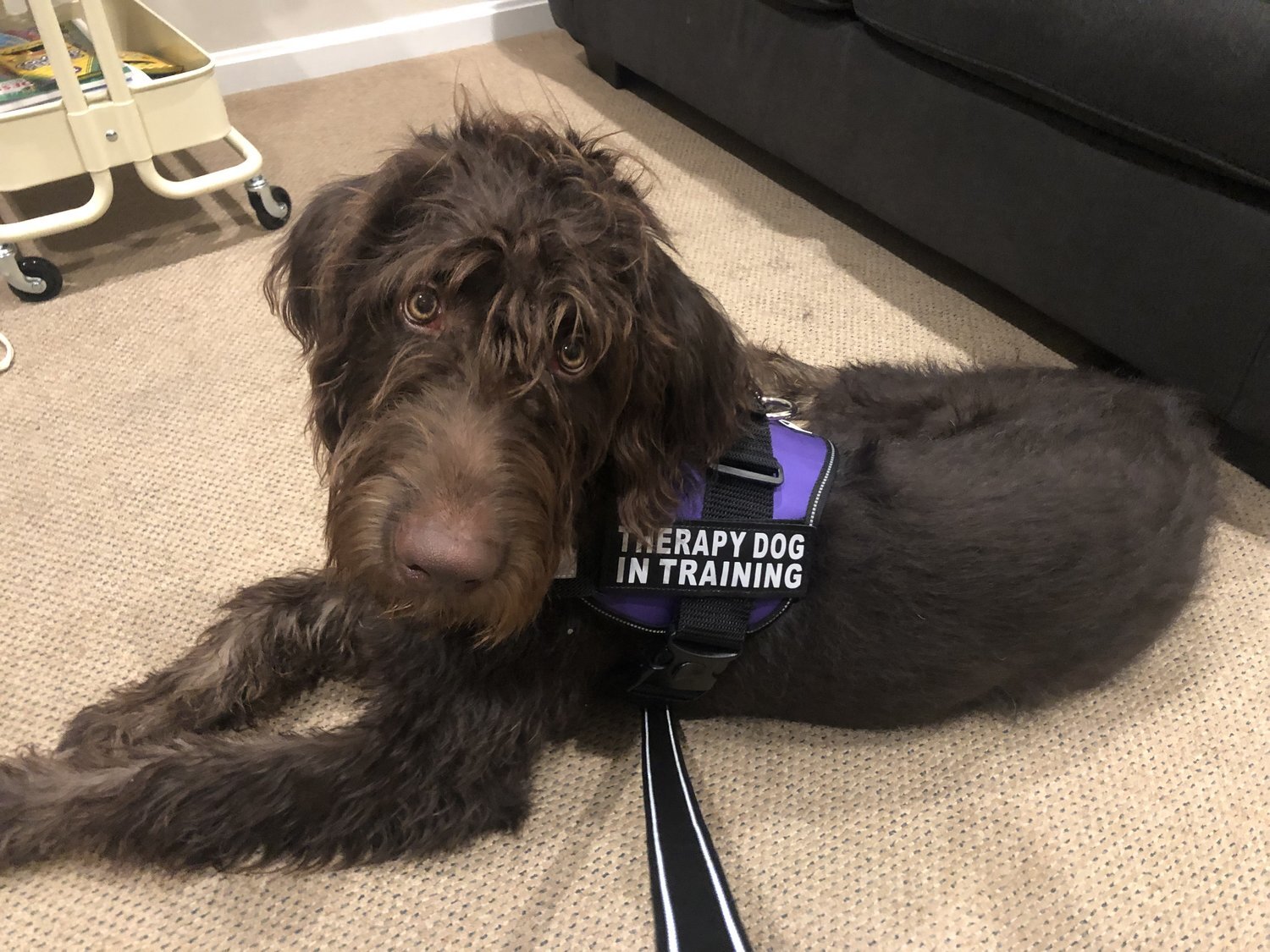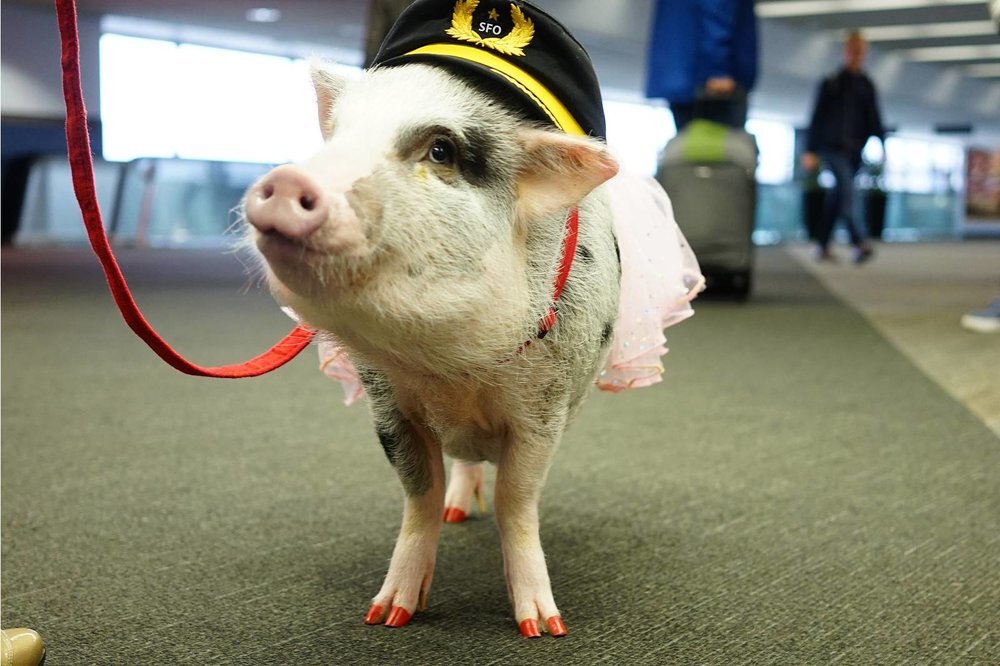
Is There Specific Training My Dog Needs to Become a Therapy Dog?
Short Answer: No.
Long, ethical and less likely to get you in long-term trouble answer: Yes. You might be surprised to learn, there is no regulating body for therapy dogs. Same with service dogs. No one controls the training they "must" go through to be working dogs in the helping field. There are many websites out there claiming to register your dog and give it special identification. These websites are charging people to give them certificates and patches that are essentially useless outside of show. Yes, maybe you like the vest (I just ordered Franklin one from Chewy) but there is no requirement to register your dog or put your dog through a specific training.(Side note: The ADA does not require service dogs to be registered. Actually, mandatory registration of a service animal (as a service animal) is not legal under the ADA, and the ADA states clearly on their website that a service animal does not need any professional training (it still has to be trained to do one task that is not a typical dog task that assists with a diagnosed disability), nor does it need any sort of identification like cards, vests, or special leashes. If you have a service animal, it is illegal for someone to question you more than asking if “the dog is a service animal required because of a disability” and “what work or task the dog has been trained to perform.” That's it. Now, let me remind you that it is extremely unethical (and maybe even illegal) to misrepresent yourself as disabled just to bring a dog into a public place.)But this article is about therapy dogs, so I will try to stay focused for the rest of the time! The American Kennel Club is a highly regarded all breed dog registry but not a governing body over dog training. Interestingly enough (I'm distracted again), there is no governing body over yoga instructors either but the Yoga Alliance has taken steps to increase the credibility of yoga instructor training, just as the AKC has taken steps to increase the training of therapy dogs. And this is important! Training a dog is no easy task! It takes consistency, commitment, time and money. If every therapist out there just took their pet to work and called it a therapy animal, there would likely be a lot negative interactions between "therapy animals" and clients.
For my training with Franklin, after extensive research I chose to go by AKC standards. For the purpose of this article, the training needed I speak of will be based on their standards.The American Kennel Club has a Therapy Dog Program which they write they created to “recognize” therapy dogs and the work that they are doing as volunteers. Interesting, right? Recognizing not regulating. Anyway, to qualify you have to meet three qualifications: be certified/registered by an AKC recognized therapy dog organization, be registered with the AKC, and perform the number of visits for the title you are applying for (we’ll get to that).

Therapy Animals: We're More Than Just Good Looks & Charm!
Last week, I tackled the difference between service animals, emotional support animals, and therapy animals. This week, a quiz! Just kidding.
On a more serious note, do you know how many different types of therapy animals there are out there? Today, we take a step away from learning about canine assisted therapy to focus on some other species and the different benefits they bring. Sometimes they are “friendly visitors,” like the pioneers of social work in the 1800s, other times their work is more therapeutically structured. Either way, therapy animals are cute and often times cuddly, but they bring way more than just their good looks and charm!
There are a lot of great programs locally that work with therapy animals besides canines! Most recently in Harford County, The Center for Trauma, Stress and Anxiety starting an Equine Therapy Program. Equine therapy can assist with treating PTSD, anxiety and depression, along with attachment and other trauma related disorders. There are also many different kinds of Equine Assisted Therapies including therapies for mental health, occupational or physical therapies, and personal/professional development. I have had clients in the past who struggled to connect to talk, play or art therapies have great success working with horses, and I believe that this occurred because of the power of the human-animal bond.
If you know of any other species of therapy animals being used in Harford County, e-mail me so that I can highlight them!

What’s a “therapy animal” anyway?
Have you ever heard of Sigmund Freud? Father of Psychoanalysis. Freud’s chow, Jofi (or Yofi), often sat through therapy sessions with him. Freud observed that Yofi helped reduce tension in the room and that patients, especially child and adolescent patients, would open up more. Jofi would sit closer to people he sensed were depressed, allowing comfort, and further away from those he sensed we anxious, allowing space. Jofi was also apparently a great time keeper, beginning to yawn and pace around fifty minutes into the session. Jofi was a therapy dog before the term 'therapy dog' even existed. What a pioneer! Over my next few blog posts, I will be breaking down the ins and outs of Animal Assisted Therapy to help my readers (and friends, colleagues and clients) get a better understanding of what Animal Assisted Therapy actually is, and how it helps others. This week, we start with understanding just what exactly a Therapy Animal is and the difference between service animals, emotional support animals and therapy animals.

